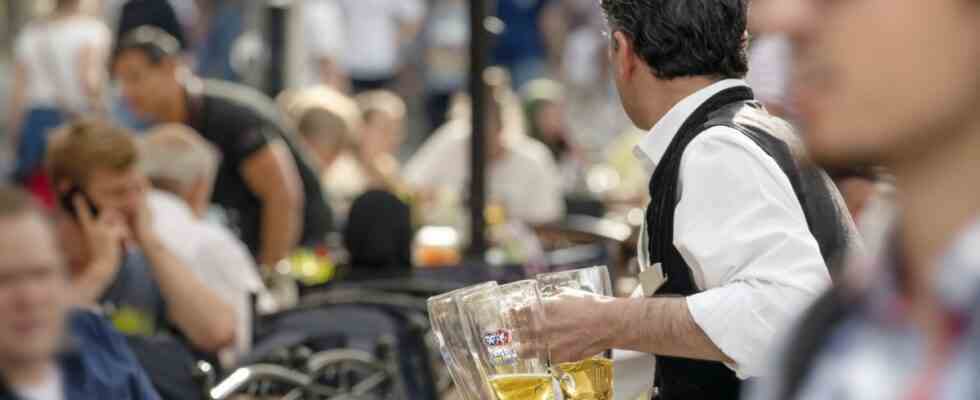Instead of an appreciation for good service, employees in the catering trade often perceive the tip as a humiliation. For example, when a bill of 69.10 euros is rounded up to 70 euros with a mild smile. “Keep the change.” Or when a tip of 50 euros is given for ten employees in the kitchen and service on a milestone birthday that lasts late into the night.
Things were different before the prices for groceries, petrol and electricity went up: waitresses and waiters went home with 50 to 100 euros in the evening. In some cases, the innkeepers report, the tip was higher than the daily wage. Extra money that the majority of service workers depend on. Together with hotel staff, they have the lowest gross wages on average almost 2100 euros gross per month. Now you could object that nurses, cashiers and bus drivers don’t get tips either. However, they will at least receive bonuses for weekend, holiday and night work. In service, it is standard to work when others have free time – without a financial bonus.
Those hardest hit by inflation will be penalized
In times of economic crisis, it is selfish to protect one’s own acquis at all costs. So wanting to continue going to the Italian, Vietnamese or tavern just as often, but saving on others who make it possible to meet up with friends there – and with their low income, they suffer the most from inflation. Of course, this does not mean those who earn little themselves. But most service staff have a keen sense of who is giving little because they don’t have more or are simply stingy.
A justified objection in the debate about tips is that it cannot be the task of the guests to compensate for the precarious wages in the catering trade. In the future, restaurateurs will have to calculate their prices in such a way that fair wages that are appropriate to the workload are possible. With declining consumption, high fixed costs and purchase prices, that sounds insane. But there is no other way to deal with the acute shortage of personnel in the industry. And it’s still a long way from the point where guests in large numbers give up going to the restaurant. This is proven by overcrowded beer gardens, dining rooms and bar counters.
Going out to eat is part of everyone’s participation
If people with little money can no longer afford this type of participation, the government must remedy the situation. The welfare state must finally ensure a real burden sharing. No tax relief like the announced compensation for cold progression will help here, from which higher earners benefit three times as much as lower income groups. Instead, additional burdens from poorer people and low-income earners must be compensated for in a targeted manner with monthly relief payments over the months of the crisis. It is about guaranteeing a minimum level of participation and a balanced diet for such people.
In addition, better occupational safety is needed in the catering trade. While working hours are meticulously observed in industry and employees are provided with ergonomic desks in offices, there are still waitresses who work 15-hour shifts without regular breaks. Or individual restaurateurs who collect tips from their employees. This is simply not legally permissible, it must also be enforced by the state.
Political demands do not release from fairness
Anyone who follows the current government actions will find that even the traffic light does not deviate from some neoliberal principles. So there is no fair distribution overnight. Anyone who criticizes politicians for a failed social policy, but tips 30 cents himself, is hypocritical. Submitting petitions and participating in demonstrations is important, but it doesn’t take away from dealing fairly with fellow human beings.

